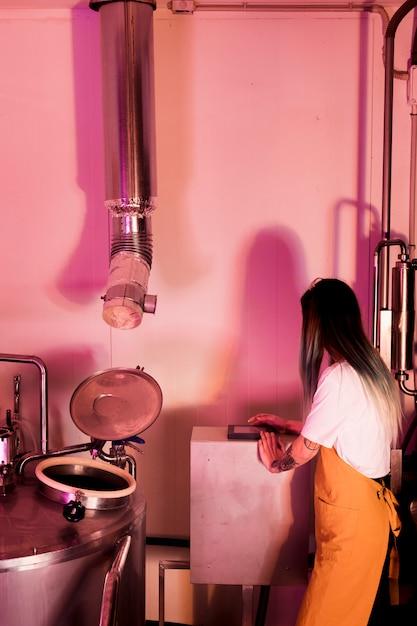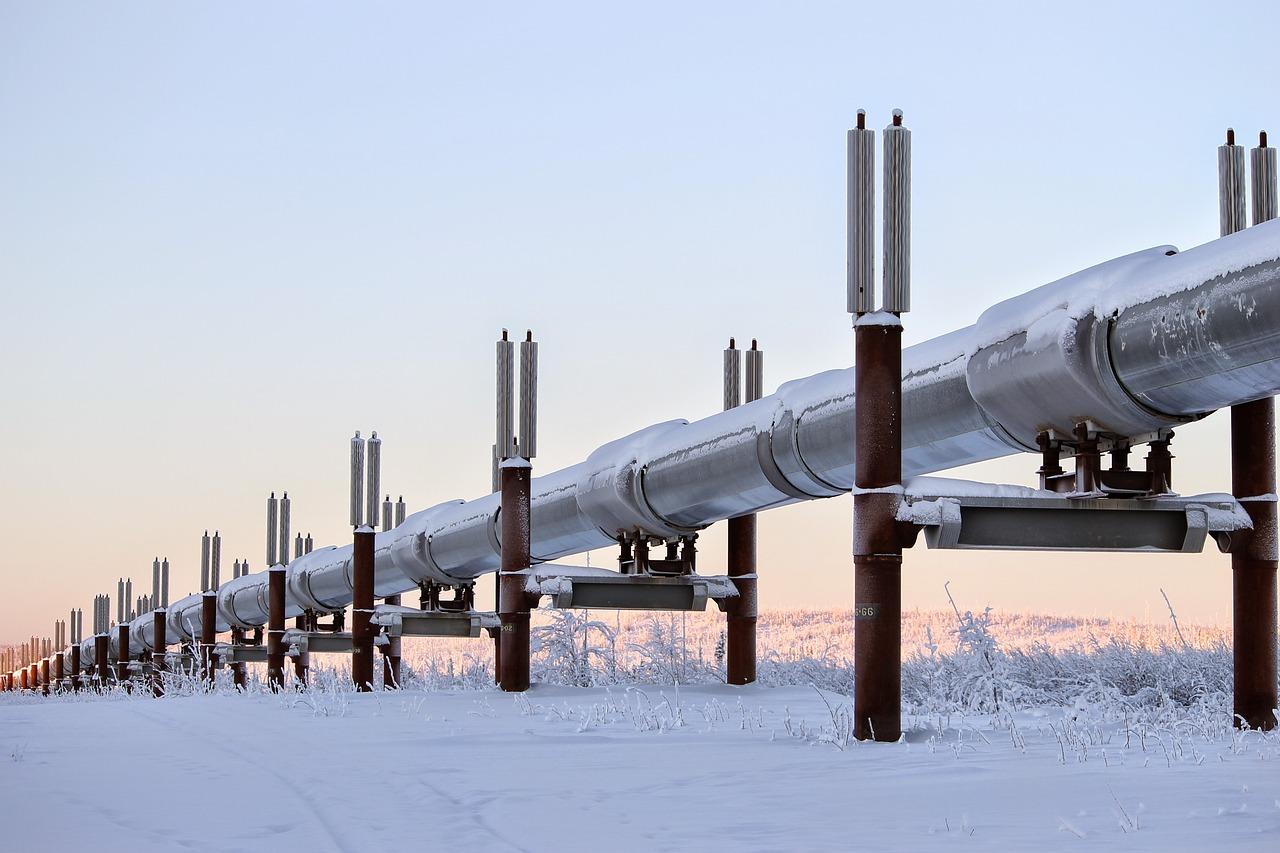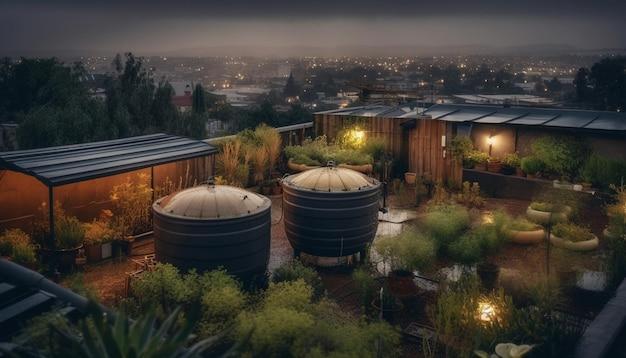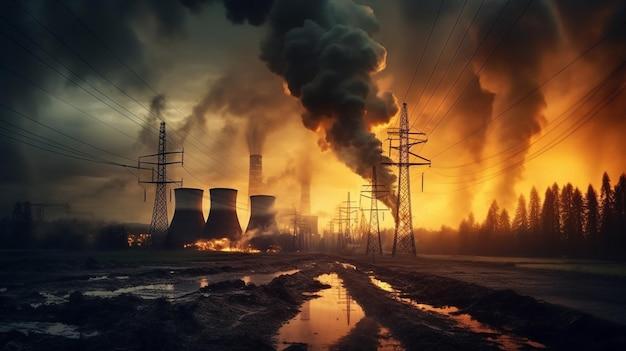Are you planning on replacing your old furnace? Do you want to know how much a new furnace costs in Denver? If yes, then you’ve come to the right place. In this comprehensive guide, we’ll walk you through everything you need to know about the cost of a new furnace in Denver.
A furnace replacement can be a costly affair, and the cost can vary depending on the type of furnace you choose, the size of your home, and the installation costs. You might have heard conflicting information about how much a new furnace costs, and it can be hard to know what to believe.
In this post, we’ll debunk common myths and answer essential questions about furnace replacement costs. We’ll help you understand why replacing a furnace can be expensive, how much you can expect to pay, and what factors contribute to the cost.
We’ll also compare the cost of a new furnace and AC, discuss furnace replacement cost per square foot, and explore the different types of furnaces available. Whether you’re looking for a budget-friendly option or want to invest in a high-efficiency furnace, we’ll help you make an informed decision.
So, if you’re ready to learn everything there is to know about new furnace cost in Denver, keep reading.
New Furnace Cost in Denver
When it comes to replacing your old furnace or installing a new one, there are several factors to consider, such as the type, size, and efficiency of the furnace. However, the most crucial factor that homeowners are always concerned about is the cost. In Denver, the cost of a new furnace can vary depending on several factors. Let’s take a closer look at some of them:
Type of Furnace
There are three main types of furnaces: gas, electric, and oil. Gas furnaces are the most common type in Denver due to their efficiency and affordable cost. Electric furnaces are also popular, especially for homes without a gas connection. Oil furnaces may be the best option for homes that have an oil supply. The cost of each type of furnace varies, with gas furnaces being the most affordable.
Size of Furnace
The size of the furnace you need depends on the size of your home, the number of rooms, and the climate in Denver. A furnace that is too small will not be able to heat your home adequately, while a furnace that is too large will consume more energy than necessary. Therefore, it’s essential to have a certified HVAC technician assess the needs of your home and recommend the right size of furnace.
Efficiency Rating
The efficiency rating of a furnace is measured by its Annual Fuel Utilization Efficiency (AFUE) rating. The higher the AFUE rating, the more efficient the furnace is, which means it will consume less energy and save you money on your energy bill. High-efficiency furnaces cost more upfront, but they offer long-term savings on utility bills.
Installation Costs
The cost of installation is another factor to consider. Installing a new furnace is not a DIY project and requires the expertise of a certified HVAC technician. Installation costs can vary depending on factors such as the complexity of the installation and the type of furnace being installed.
Additional Costs
Additional costs may include ductwork, permits, and labour, which can add to the cost of installing a new furnace. Ensure that you get a detailed estimate from your HVAC contractor and factor in all additional costs.
In conclusion, the cost of a new furnace in Denver varies depending on several factors. To get an accurate estimate of the cost, schedule a consultation with a certified HVAC technician. Investing in a high-efficiency furnace may cost more upfront, but it will save you money on utility bills in the long run.
New Furnace and AC Cost
When considering upgrading your HVAC system, it’s essential to look at the cost of both a new furnace and a new air conditioning unit. While it may seem like two separate expenses, the truth is that they work together and need to be installed and maintained at the same time. Here’s what you need to know about the cost and the process of installing a new furnace and air conditioning unit.
The Average Cost of a New Furnace and AC Unit
According to HomeAdvisor, the average cost of installing a new furnace and AC unit is around $7,500. This cost can vary depending on the size of your home, the energy efficiency you want, and the different brands available. While the price may seem daunting, it’s essential to have a high-quality HVAC system to save money in the long run.
Choosing the Right Size for Your Home
One aspect to keep in mind when looking into a new furnace and AC unit is the size of your home. You don’t want to pay extra for an HVAC system that is too large or too small for your needs. The ratio of BTUs (British Thermal Units) to square footage is crucial in finding the right size HVAC system for your home.
Energy-Efficient Models Save You Money in the Long Run
When investing in a new furnace and AC unit, you should look for an energy-efficient model. These systems can save you money on your heating and cooling bills each month by using less energy and working more efficiently. They may have a higher upfront cost, but they are worth the investment in the long run.
Professional Installation Is Key
Once you’ve settled on the right HVAC system for your home, it’s time to have it installed professionally. Skipping this crucial step can lead to costly repairs down the line and less energy-efficient performance. Look for experienced technicians and ask for referrals from friends and family to ensure the installation is done correctly.
Purchasing and installing a new furnace and AC unit can seem like a daunting task, but it’s an investment in the health and comfort of your home. With the right size and energy-efficient model, you can save money on your monthly bills and ensure your HVAC system lasts for years to come. Remember to always trust professional technicians to install your new system and keep it maintained to its highest potential.
Furnace Replacement Cost
Upgrading your furnace can be a costly investment, but it’s essential to ensure your home stays warm and comfortable during the winter months. The cost of a furnace replacement depends on several factors, including the type of furnace, the brand, and the difficulty of installation.
Types of Furnaces
There are three main types of furnaces: gas, oil, and electric. Gas furnaces are the most popular and usually the most affordable. Oil furnaces are less common and are typically more expensive to install and maintain. Electric furnaces are the least expensive to install, but they are generally more expensive to operate.
Brand
The brand of the furnace you choose can also affect the cost of replacement. While some of the lesser-known brands may seem like a good deal, they may not be as durable or efficient as the more established brands. It’s essential to do your research and choose a brand with a good reputation for quality and reliability.
Installation Difficulty
Finally, the complexity of the installation can also affect the overall cost of replacement. If your new furnace requires extensive ductwork or electrical upgrades, the installation costs will be higher. It’s crucial to get a quote from a reputable HVAC contractor to determine the exact cost of installation.
In conclusion, the cost of a furnace replacement can vary significantly depending on several factors. It is essential to consider the type of furnace, the brand, and the difficulty of installation before making a purchase. By doing your research and getting quotes from reputable HVAC contractors, you can ensure you get the best value for your investment.
New Furnace Cost in Denver Per Square Foot
When it comes to installing a new furnace, homeowners want to know how much it’ll cost per square foot. The total cost of installing a new furnace depends on variables such as furnace size, location, heating capacity, and energy ratings, but it mainly ranges between $2,500 to $7,500.
Factors That Affect New Furnace Cost Per Square Foot
Several factors can influence the cost of installing a new furnace per square foot, such as:
Furnace Size
Larger homes require more work to install and thus cost more.
Heating Capacity
The higher the heating capacity, the more expensive the furnace will be.
Ductwork Replacement
Older homes may require replacement or reconfiguration of ductwork, which could add to the installation cost.
Energy Ratings
Furnaces with a higher energy rating tend to cost more, but they pay off in the long run through energy savings.
How to Calculate Furnace Cost Per Square Foot
To calculate the total cost per square foot of installing a new furnace, divide the total cost by the total square footage of the living area in your home.
For instance, if the total cost of a new furnace for your home is $5,000, and your home has 1,500 square feet of living space, the cost per square foot will be about $3.33.
Calculating the cost of a new furnace per square foot depends on several factors and aspects of your home, but with the information provided, you can get a rough estimate. Keep in mind that hiring a professional HVAC contractor to evaluate your home and install the furnace will provide you with a more accurate estimate. Stay warm, Denver!
Why is Replacing a Furnace So Expensive
It’s no secret that replacing a furnace can be expensive. However, most homeowners don’t know why it costs so much to replace a furnace. Well, there are several factors that contribute to the high cost of furnace replacement, and we will discuss some of them in this section.
The Cost of the Furnace Itself
The cost of the furnace is one of the main reasons why replacing a furnace can be expensive. Furnaces come in different sizes and efficiency levels, and the cost varies depending on the size and efficiency level of the furnace. On average, a new furnace can cost between $2,500 to $7,500.
Installation Costs
Installing a furnace is a complex task that requires expertise and specialized tools. The cost of installation is another factor that contributes to the high cost of furnace replacement. On average, installation costs range from $1,500 to $3,500. However, the costs can vary depending on the complexity of the installation, the location of the furnace, and the amount of ductwork that needs to be installed.
Ductwork
If the existing ductwork is old or damaged, it may need to be replaced or repaired. The cost of ductwork replacement or repair can add to the overall cost of furnace replacement. On average, ductwork replacement or repair can cost between $500 to $2,000.
Additional Work and Upgrades
In some cases, additional work may need to be done when replacing a furnace. For example, if the electrical wiring is old or not up to code, it may need to be upgraded. Upgrading to a smart thermostat is another popular upgrade that homeowners consider when replacing a furnace. These additional works and upgrades can add to the overall cost of furnace replacement.
In conclusion, replacing a furnace can be expensive due to several factors such as the cost of the furnace, installation costs, the cost of ductwork, and any additional work or upgrades. However, while the cost may seem high, it’s important to remember that a new furnace can save you money in the long run by reducing your energy bills and increasing your home’s value.
How Much Does the Average New Furnace Cost
When it comes to purchasing a new furnace, the biggest question on every homeowner’s mind is, “How much will it cost?” Unfortunately, there’s no one-size-fits-all answer to this question. The cost of a new furnace depends on several factors, including the size of your home, the type of furnace you choose, and the installation costs.
Factors That Affect the Cost of a New Furnace
Size of Your Home
The size of your home is one of the most significant factors that affect the cost of a new furnace. The larger your home, the more powerful furnace you’ll need. A larger furnace will cost more than a smaller one.
Type of Furnace
There are two main types of furnaces: gas and electric. Gas furnaces are generally more expensive to install, but they tend to be more energy-efficient and can save you money on your energy bills in the long run. Electric furnaces are typically less expensive upfront, but they can be more expensive to operate.
Installation Costs
Installation costs also play a role in the total cost of your new furnace. If your home requires extensive ductwork, the installation costs will be higher. Additionally, if you opt for a high-efficiency furnace, the installation costs will be higher than if you choose a less-efficient model.
Average Cost of a New Furnace
According to HomeAdvisor, the average cost of a new furnace in Denver is between $2,500 and $7,500. However, this is just a general estimate, and your actual costs may be higher or lower depending on your specific needs.
To get an accurate estimate of the cost of a new furnace for your home, you should schedule a consultation with a professional HVAC technician. They’ll be able to assess your home’s heating needs and provide you with a more accurate estimate.
Purchasing a new furnace is a significant investment, and it’s important to know what to expect in terms of costs. The total cost of a new furnace depends on several factors, including the size of your home, the type of furnace you choose, and the installation costs. The average cost of a new furnace in Denver is between $2,500 and $7,500, but this is just a general estimate. To get an accurate estimate of the cost of a new furnace for your home, schedule a consultation with a professional HVAC technician.
How Much Does It Cost to Replace a Furnace in Denver
If you are planning to replace your old furnace with a new one, you are probably thinking about the cost. The cost of a furnace replacement depends on several factors such as the size, type, and efficiency of the unit. However, the cost to replace a furnace in Denver typically ranges from $2,500 to $7,500.
Factors That Affect the Cost of Furnace Replacement
Size and Type of Furnace
The size and type of furnace you choose will affect the cost of the unit. The bigger the furnace, the more expensive it will be. Similarly, a gas furnace will cost more than an electric one.
Efficiency Rating
The efficiency rating of a furnace, also known as AFUE (Annual Fuel Utilization Efficiency), determines the amount of energy it consumes. The higher the efficiency rating, the more expensive the furnace. However, a high-efficiency furnace will save you money in the long run on energy bills.
Ductwork Replacement
If your ductwork needs replacement or repair, it will add to the cost of the furnace replacement. The cost of ductwork replacement depends on the size of your home and the extent of the damage.
Additional Costs to Consider
Installation
The cost of installation is usually included in the furnace replacement cost. However, if you have a complex installation or need additional materials, it may add to the cost.
Permits and Inspections
In Denver, you will need a permit to replace your furnace, which costs around $50. You may also need an inspection after installation, which costs around $100.
Maintenance
Regular furnace maintenance is crucial for the longevity of the unit. It is important to factor in the cost of maintenance when budgeting for your furnace replacement.
Replacing a furnace can be expensive, but it is a necessary investment for your home’s comfort and safety. By considering all the factors that affect the cost and selecting a reputable HVAC contractor, you can ensure that you get the best value for your money.
How Much Does a New Furnace Cost for a 3,000 Square Foot Home
If you’re in the market for a new furnace, you’re probably wondering how much it’s going to cost. The answer depends on a variety of factors, including the size of your home, the type of furnace you choose, and the complexity of the installation.
Size Matters
One of the main factors that will influence the cost of your new furnace is the size of your home. A 3,000 square foot home is considered a large home, so you can expect to pay more for a furnace that can adequately heat the space.
The Cost of Different Furnace Types
Another factor that will influence the cost of your new furnace is the type of furnace you choose. The most common types of furnaces are gas and electric.
-
Gas furnaces: Gas furnaces tend to be more expensive upfront, with prices ranging between $2,500 and $7,500. However, gas furnaces are more energy-efficient and will save you money on your energy bill in the long run.
-
Electric furnaces: Electric furnaces are generally less expensive upfront, with prices ranging between $1,000 and $5,000. However, electric furnaces are less energy-efficient than gas furnaces and may end up costing you more in the long run.
Additional Installation Costs
In addition to the cost of the furnace itself, there may be additional installation costs to consider. These costs can include:
-
Ductwork installation: If your home doesn’t already have ductwork in place, you’ll need to have it installed. This can cost anywhere from $1,500 to $4,000.
-
Removal and disposal of old furnace: If you’re replacing an old furnace, you’ll need to have it removed and disposed of properly. This can cost between $500 and $1,500.
-
Permits and inspections: Depending on where you live, you may need to obtain permits and have your new furnace inspected. This can add several hundred dollars to the total cost.
When it comes to the cost of a new furnace for a 3,000 square foot home, you can expect to pay anywhere from $1,000 to $7,500, depending on the type of furnace you choose and any additional installation costs. It’s important to do your research and get multiple quotes from reputable contractors to ensure you’re getting the best deal possible.
What Size Furnace Do I Need for a 2,000 Square Foot Home
If you’re considering replacing or installing a new furnace in your 2,000 square foot home, you may wonder what’s the appropriate size you’ll need. There’s no precise answer to this question because the actual size relies on several variables.
Factors that Determine the Size of the Furnace
The size of the furnace you’ll need for your 2,000 square foot home depends on the following factors:
Climate
If you live in an area with a bitterly cold winter such as Denver, you’ll need a bigger furnace to keep your home warm.
Insulation
Proper insulation is essential in maintaining your home’s heat, and reducing energy bills. A well-insulated house will require a less powerful furnace.
Home Design
The layout, number and size of rooms, ceiling height, and windows of your home affect the size of the furnace you’ll need.
Energy Efficiency
A high-efficiency furnace will use less energy, compared to a low-efficiency furnace, to heat your home. This means you’ll need a smaller furnace.
Furnace Sizing Calculation
To get the appropriate furnace size for your 2,000 square foot home, you’ll need to call HVAC professionals to perform a sizing calculation. This calculation will factor in the variables we’ve discussed above to determine the right furnace for your home. Don’t attempt to do the sizing yourself, as you may end up choosing the wrong furnace size.
Choosing the right furnace size is a crucial factor in keeping your home comfortable and reducing energy bills. Several factors, such as climate, insulation, home design, and energy efficiency, play a role in determining the size of the furnace. Be sure to consult with HVAC professionals to perform a sizing calculation and pick the perfect furnace for your home.



